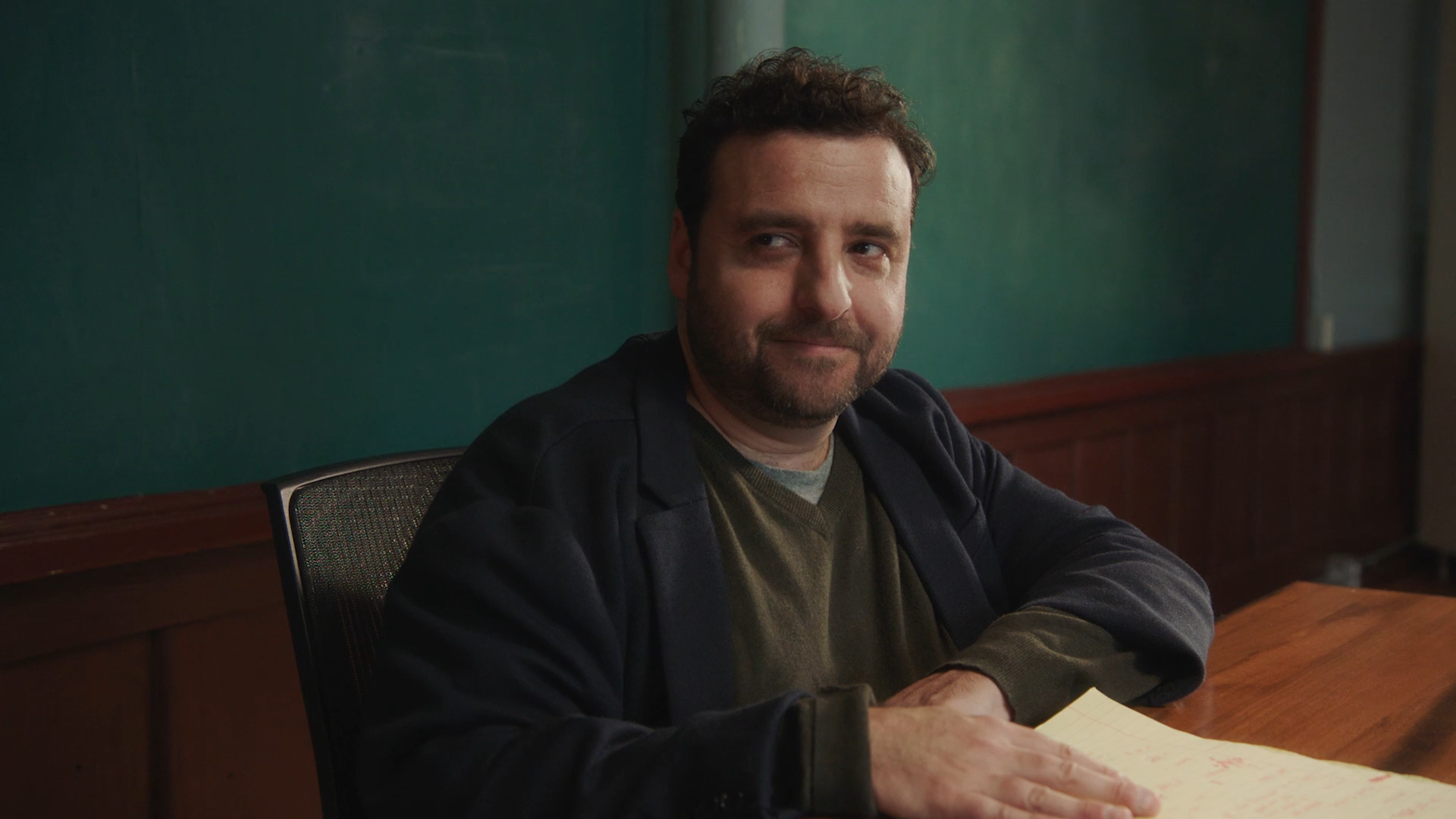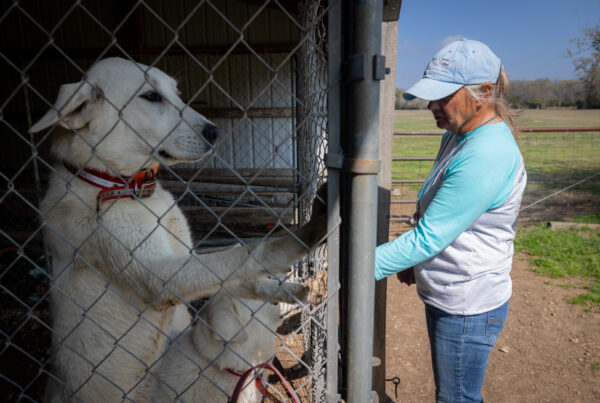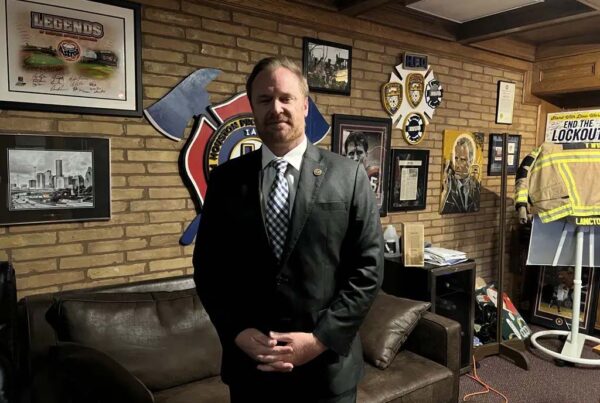Austin-based filmmaker Bob Byington has made a career out of his dry comedic style. His movies aren’t the year’s biggest blockbusters, but they have been the darlings of film festivals.
They often star actors you’d recognize. But he also regularly casts fellow Austin-based directors. Both of those features are true for Byington’s latest film, “Lousy Carter.” It opens in theaters March 29.
The Texas Standard sat down with Byington to try to get a straight answer or two about the movie. It was shot in Austin, as is true for almost all of his films.
Listen to the interview in the audio player above or read the transcript below.
This transcript has been edited lightly for clarity:
Texas Standard: Why is [filming in Austin] important to you? It’s just convenient?
Bob Byington: Well, it is convenient, but, there’s something, you know, you know better than I do that Austin film culture kind of came out of “Slacker” and “El Mariachi” and Austin Film Society, all these kind of forces at work.
And that’s kind of when I got here, like when that was happening. And so I’ve sort of grown up in Austin in a kind of film culture environment.

Bob Byington, writer and director of “Lousy Carter,” a Magnolia Pictures release.
Does it feel like it’s part of your mission to perpetuate it?
Oh, no. I thought you were going to say, “does it feel like, a part of you?” And yeah, I can’t really separate it from the idea of Austin.
And like, if I’m in a city like, that’s the same size as Austin, it’s weird to me that a lot of times they don’t have anything like it. Like Seattle, for example, has no film culture at all. And that’s weird to me.
“Lousy Carter” doesn’t say anywhere explicitly that it was Texas or Austin… It is Austin if you know it’s Austin, but otherwise it could be kind of anywhere, right?
Right.
Is that intentional? Or is it just a byproduct of making a film that wasn’t necessarily about a place?
Well, I mean, it’s funny because my sister was just visiting and we went to the Capitol and we went to like South Congress. So like we did some things that I don’t do anymore.
And I suppose that there’s some logic to the idea of like, you know, putting a couple driving shots of South Congress or the Capitol in your movie. It doesn’t cross my mind to do that, but I don’t think it’s a bad idea. And it does help the audience I think a little bit, especially people who love a place. And the only thing they can remember about your movie is that there was a shot of the Capitol in it.
Well, hopefully that’s not the only thing people remember about your movies… One of the plot points in your latest film is that the main character, Lousy Carter, has this film that he’s never finished. Is that a relatable point to you? Are there projects like that that you’ve never gotten all the way done?
No.
Okay. That’s amazing. Right? I mean, I feel like any filmmaker you talk to, there’s like a script that – it’s just the one that if only they could get produced… No? You’ve gotten to do everything you’ve ever wanted?
Yeah. I mean, you don’t want my life, but yeah.
That’s pretty amazing.
Yeah, but I’m – I can go on to some other problems if you want.
No, that’s okay. But what’s your prescription for that? I mean, did you have…
Low ambition?
I was not going to phrase it that that way, but yeah, I guess attainable standards?
Yes.
Low budget? I mean, that is that how you get it done?
Yes.
And then find some good actors who were like, excited to work with you?
Yeah. I mean, we’ve got some alumni at this point. And, you just give them a call and say, “Hey, we’re going to do another one. Can you?” You know, it’s not a huge commitment for them usually, so it’s not that hard.
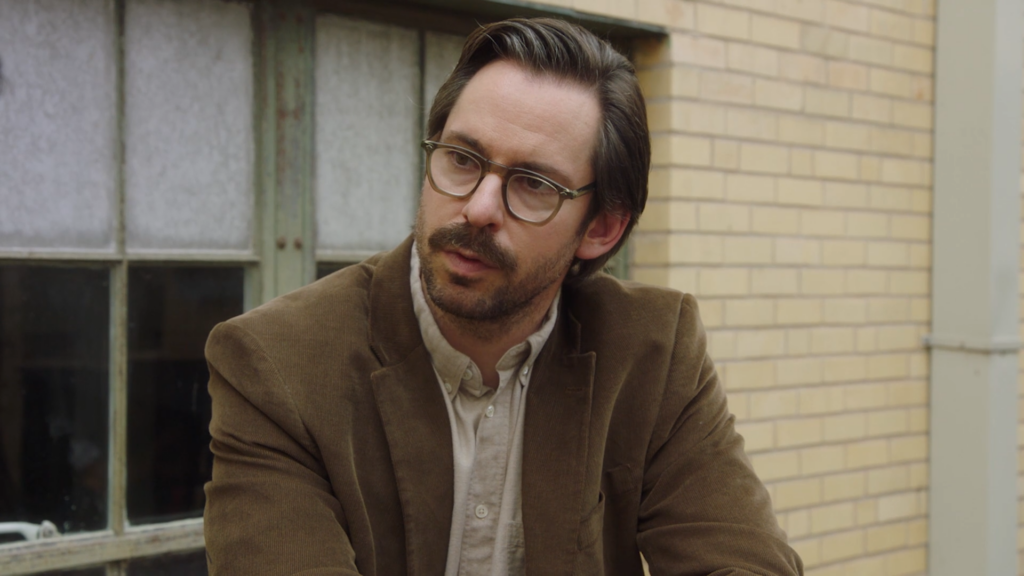
Matin Starr in “Lousy Carter,” a Magnolia Pictures release.
And David Krumholtz, who stars in this film, you’ve worked with before, I believe. Now, I remember him, because I have a long enough memory, as a child actor, but probably more recently everybody would point to “Oppenheimer.” How did you land on him for the lead role? I understand there was somebody who read before him.
Yeah. We’re not supposed to say. It’s like, taboo.
It’s in the press notes.
Oh, Jay?
Yeah. Well, there was somebody else?
Jay was never going to play the part, which is why we mentioned…
Jay Duplass, we should say.
Yeah.
Okay, so that’s in the press notes, but now there’s a secret one. Now I’m curious.
Yeah, you’re not supposed to say that stuff. It’s considered bad form. But I’m dying to tell you, but I can’t.
But, David, you know, I’d worked with him in Nebraska, I guess in 2016 we shot that movie. No, we shot that in 2017.
Not the film “Nebraska.”
Yeah, I made “Nebraska.”
No, the film is “Frances…”
Ferguson. Yeah.
And David, like, when he’s on your set and you’re watching him, it’s like, “whoa, this guy really is something.”
So you have a good cast here. It’s also exciting, I think, for people who pay attention to Texas film to recognize at least one Texas filmmaker, Macon Blair…
And Andrew Bujalski.
Do you guys have a club then? Do you guys meet up for coffee?
Andrew and I have a thing called Coffee Club that we used to do a lot. And then he got married and had kids. And we don’t now. We do it every like three months. But we used to do it like, every ten days.
And, Macon, I don’t get to see as much socially, but I certainly look up to him. He’s a brilliant filmmaker and a great actor. I mean, he works a lot.
What do you want people to know? Is that a big and broad enough question?
About “Lousy Carter?”
Yeah.
Oh, that it’s a must-see. Like you have to see it. Not like you might want to see it. Not like you might like it. It’s a must see.
“This is the best movie I’ve ever seen” – that’s the word of mouth that we need.
It’s not really very honest, but.
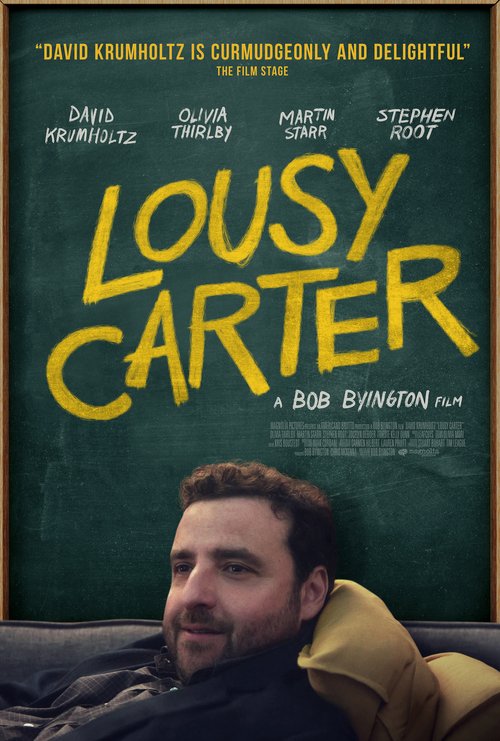
Theatrical one-sheet for “Lousy Carter,” a Magnolia Pictures release.
There’s a lot of humanity, though, in the movie that I think it makes it relatable to people. You’re smirking…
No, not at all. I’m not smirking. I’m – you know, we’re in a phase now where we don’t really know if anyone’s going to see the movie. And so, we could talk in a couple of weeks and the movie could be like a complete flop, or it could be doing well or somewhere in between. We have no idea.
But there’s this beautiful thing, right? Which is that – maybe it’s a beautiful thing, maybe it’s just an extra complex thing – but that we have theaters and that used to sort of be the primary venue until whatever came out on VHS or DVD. But we have streaming now, which seems like – I don’t know if “safety net” is the right word – but there’s certainly a huge demand for content. Does it feel that way to you as a filmmaker or not so much?
Well, yeah, I mean, there’s a huge demand for content, but everyone knows the feeling of looking around for content on your menu, right? And it just feels like, well, like what documentaries – like every single documentary subject has been addressed at this point, right? Like, there are no subjects left.
And now with AI looming, it feels like we’re moments away from like a, you know, “type in the movie that you want to watch,” you know, and…
We’ll create it on demand?
Yeah. And we’ll make it and you’ll be watching it in five minutes.
Doesn’t that break the new contracts and stuff?
I don’t see that being a real problem.
But yeah, hopefully the contracts can help with that. But I don’t know, it feels like something – a tide that’s not going to be stemmed.
I feel like there’s a message here that you sent but you didn’t send explicitly. So maybe I’ll give you a chance to say that, which is that when people have a multitude of choices of things to watch that maybe they can think about supporting stuff that came from…
People want to be entertained. They don’t want to support you. They want to have a good movie going experience.
Fair enough. Take Bob’s feelings out of it.
I don’t want that sympathy. It’s like people won’t sleep with you out of sympathy and they won’t watch your movie out of sympathy. You know, those are the two areas, right? Like, in my experience.
If you found the reporting above valuable, please consider making a donation to support it here. Your gift helps pay for everything you find on texasstandard.org and KUT.org. Thanks for donating today.


